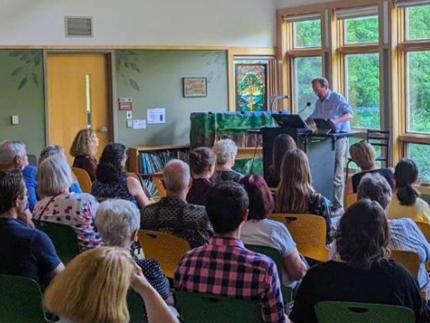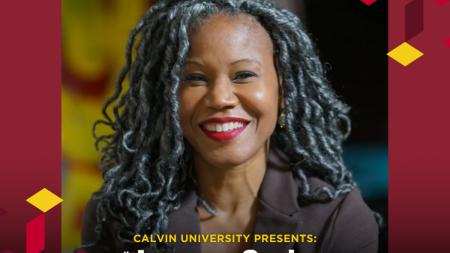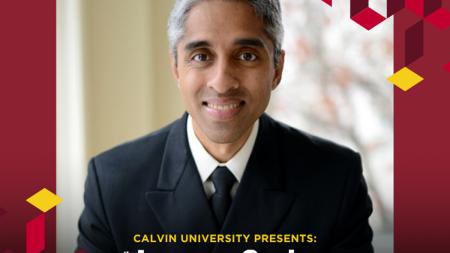Taking Faith and Writing to New Depths

Connie Hampton Connally has always enjoyed writing, she said. She’s been to several writer workshops and conferences over the years. Some of those focused on how to find a publisher, and others concentrated on how to improve one’s craft.
But most didn’t allow hospitable space for her faith, she said.
“So I’ve sometimes gone to Christian writers conferences too,” said Connally.
But at a lot of those gatherings, she said, she “felt frustrated that there wasn’t a high literary level.” And at workshops connected with a university or another organization that is non-faith based, she said, there tends to be some “intellectual prejudice against religion, so for people of faith it can be frustrating, and you begin to feel pretty alone.”
But thankfully, Connally added, there’s a new type of writers workshop called Scriptoria.
Gary Schmidt, a longtime English professor at Calvin University and a Newbery Medal and Printz Honor winning author, explained that he and a couple of colleagues at two nearby faith-based institutions “met over lunch and started to dream” about a type of workshop that hadn’t been tried before.
What emerged from their discussions was a collaboration, said Schmidt, between Calvin University, Cornerstone University, and Aquinas College that “provided an opportunity for us to think seriously about how it is that a group of Catholic, Reformed, and evangelical writers might come together and learn from one another about the craft of writing, how we approach the craft of writing.”
And the result is Scriptoria.
The idea is to strive for writing with excellence, said Schmidt, “so in the workshop we gather together in the mornings to talk about how to revise and create good writing, [and we] . . .encourage people to be more thoughtful about how their faith does truly impact not just what they are writing but also how they are going about it. It’s not just, ‘Oh, okay, I’m a Christian, so I shouldn’t use a cuss word here.’ It’s much more about thinking as a Christian in a particular tradition, and at the same time coming to understand what I can learn from other faith-based traditions as I grow in the craft of writing.”
This idea is exactly what Connally was longing for, she said, so when she heard of the inaugural meeting of Scriptoria in 2022, she didn’t hesitate to sign up.
“I thought ‘Wow, that is just exactly where my heart is.’ I felt a real longing to be able to come together with other writers around faith,” said Connally. “I wanted to be with people who wanted to write deeply and with an attitude that faith is part of what we’re here for. I thought it was a really nice combination of spiritual support and intellectual growth.”
Connally said she left the workshop feeling fulfilled instead of frustrated. She also received a boon of support, which she said came at just the right time.
“When I went to Scriptoria, I had finished writing a novel, and I was in the middle of editing it. When I found out Scriptoria was going to be offering a prize for the best fiction writing, I thought I should submit it,” said Connally. So she worked tirelessly to get her work in before the deadline.
Then at the workshop, she brought the first two chapters of her novel as her writing sample to be reviewed with others in small groups of eight. In each session, the group would read and offer feedback and suggestions on their peers’ writing. Connally said that, for her, that time proved to be life-giving.
And then “they announced that my novel was the winner” in the Best Fiction category, “and I was just so grateful because people were super-supportive and excited about it,” said Connally. Thanks to a generous gift from Henry and Mary Vander Goot, the award came with a $5,000 monetary prize.
“I was extremely grateful,” said Connally, “not only that it won the prize but also that people were backing me up on that, saying, ‘Connie, send this out and keep us informed on how it does.’”
In April 2024, Connally’s book Fire Music will be published by Coffeetown Press.
Schmidt said he is encouraged by success stories like those of Connally and how the workshop has grown since its first year.
“This is a great opportunity for people who have wanted to write or thought they wanted to write, but really don’t know how to move from a finished manuscript to a published book,” said Schmidt. “We show people how to use that process, how to go from a manuscript to an agent to a publishing house to a finished text.”
Schmidt noted, as well, a great takeaway from this workshop that he found surprising.
“One of the things we do is that we have devotions in the morning, and writers from Calvin, Cornerstone, and Aquinas each take turns. It’s been eye-opening in a way just to see how each tradition approaches the idea of a morning devotional time for a writing workshop,” said Schmidt. “For the Reformed world it feels very intellectually oriented, and then with Aquinas, highly liturgical. . . . It feels to me that at the very least this enterprise, this Scriptoria, has brought some people to an awareness of a tradition that they hadn’t thought about very seriously before, and in the center of this is understanding how our words matter, how they reflect our faith, how they can help us and others come to an understanding of God. They all cohere for me in that moment.
“I cherish that time when a few dozen people come together to worship, and then we go and see how today our words reflect our faith. That’s a cool thing.”


